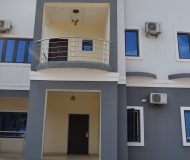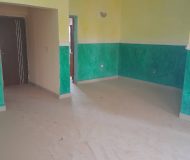
Worries Surrounding the Impact of Naira Depreciation on the Real Estate Sector
The Real Estate and construction sector in Nigeria is facing a myriad of challenges due to the ongoing depreciation of the country’s currency, the naira. This depreciation has had a ripple effect, leading to increased costs in raw materials, labor, transportation, and contracts within the industry.
Despite the naira hitting an all-time low of N810 against the dollar, there is a glimmer of hope for Nigerians. A weaker naira relative to the dollar can make investing more affordable for Non-Resident Nigerians (NRNs) and foreign investors.
As of the latest data, the naira continues to decline in value, with an exchange rate of approximately N827 to the Euro and N976.72 to the British Pound sterling in the parallel market. This situation has significant socio-economic implications for the Real Estate industry, affecting both production and consumption. Notably, over 60 percent of building materials used in construction are imported.
The continuous depreciation of the naira has also impacted the cost of borrowing for real estate projects, resulting in high interest rates, which currently stand at around 30 percent. This, in turn, has led to higher labor costs in housing production, as many workers have demanded adjusted wages.
The inflation rate in Nigeria has been steadily rising, reaching 24.08 percent in July 2023, the highest since September 2005, surpassing earlier forecasts of 23.7 percent. These economic conditions have added to the cost of construction while limiting the capacity of Nigerians to own homes or afford rental properties.
Experts have pointed out that naira depreciation has adversely affected the property market, resulting in decreased patronage for developers. Many developers have had to revise their initial transaction agreements for ongoing projects due to the currency’s instability.
Dr. Aliyu Wamakko, President of the Real Estate Developers Association of Nigeria (REDAN), stressed that the recent naira depreciation has significantly reduced people’s purchasing power and severely impacted the sector. He called upon the Federal Government to stabilize currency fluctuations through regulations and provide affordable finance to stimulate construction activities.
Wamakko advised the government to reduce interest rates on loans given to private sector operators to create more employment opportunities. He also urged the government not to engage in housing production but to support private sector operators.
Austin Otegbulu, a professor of Estate Management at the University of Lagos, emphasized that naira depreciation affects returns on investment and purchasing power. He noted that this depreciation can discourage foreign investors in the Real Estate market and distort the cost of capital.
Otegbulu highlighted the importance of considering inflation risk in investment decisions, as it can lead to increased lending rates, labor costs, and construction expenses without a corresponding increase in property value.
In a report by Northcourt Real Estate titled ‘The Short, Medium, and Long-Term Impacts of Recent Policies on the Nigerian Real Estate Markets,’ CEO Mr. Ayo Ibaru predicted that asset repricing would factor in the naira’s devaluation in the short term. Diaspora investment in the Real Estate market may also slow, and price reviews for off-plan sale agreements are expected due to increased prices. This could potentially impact the affordability of low to mid-income apartments.





